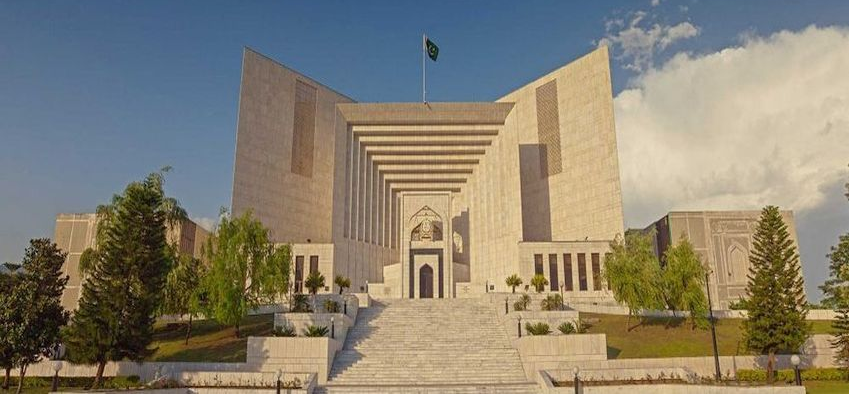The Political Parties must submit their Lists of Candidates for Reserved Seats within stipulated time before ECP; SIC failed to submit list, which disqualified the party from claiming reserved seats --- Supreme Court of Pakistan
Islamabad 27-09-2024: The Supreme Court of Pakistan has dismissed the appeals filed by Sunni Ittehad Council (SIC) and its Chairman, Sahibzada Muhammad Hamid Raza, challenging the refusal of the Election Commission of Pakistan (ECP) to allocate reserved seats for women and non-Muslims in the National Assembly and Provincial Assemblies. In a detailed judgment, the Court upheld the decision of the Peshawar High Court, confirming that SIC did not meet the legal and constitutional requirements for the allocation of these reserved seats.
The Court also scrutinized the role of the ECP in its allocation of reserved seats, expressing concern over its handling of certain electoral processes, particularly regarding candidates from Pakistan Tehreek-e-Insaf (PTI). However, the Court refrained from making any definitive ruling on the PTI matter as it was not formally pursued by the party.
The Court ruled that under Articles 51(6)(d) and (e) of the Constitution and Section 104 of the Elections Act, 2017, a political party must contest and win at least one general seat in the National Assembly or Provincial Assemblies to qualify for reserved seats. The Court found that SIC had not participated in the general elections and had failed to submit the required list of candidates for reserved seats within the timeframe set by the ECP. As a result, the party was deemed ineligible for reserved seats.
The judgment emphasized that political parties must submit their lists of candidates for reserved seats within the time stipulated by the ECP. SIC had failed to submit such a list, which further disqualified the party from claiming reserved seats.
During the proceedings, the Court found discrepancies in the ECP’s treatment of PTI candidates. Several PTI candidates had declared their affiliation with the party and submitted certificates to the ECP, but were wrongfully declared independent candidates. The Court expressed concern over this issue but did not pass any definitive rulings, as PTI had not formally challenged the ECP’s actions.
The Court criticized the ECP for failing to fulfill its constitutional duties under Articles 218 and 219, which require the commission to conduct elections fairly and transparently. It directed the ECP to revisit its notifications regarding returned candidates and ensure that candidates who declared their political party affiliation were recognized as such.
The appeals filed by SIC and its Chairman were dismissed on the grounds that the party did not meet the constitutional and legal criteria to be allocated reserved seats for women and non-Muslims. The Court upheld the High Court’s decision, confirming that SIC’s failure to contest general elections and submit the required candidate list rendered it ineligible for these seats.
The Court directed the ECP to revisit its decision on the allocation of reserved seats, ensuring that candidates who declared their political party affiliation were recognized accordingly. The ECP was instructed to complete this process within seven days after providing an opportunity of hearing to the affected parties.
This ruling reinforces the procedural and constitutional requirements that political parties must adhere to in order to be eligible for reserved seats. The judgment also sheds light on the responsibility of the Election Commission to ensure fair and transparent elections. While the Court expressed concern over the ECP’s handling of PTI candidates, it refrained from issuing any formal directive as PTI did not challenge the matter before the Court.
The decision sets a precedent for political parties regarding the importance of following procedural requirements for elections, particularly in relation to reserved seats for women and non-Muslims in Pakistan’s legislative bodies.
Powered by Froala Editor








